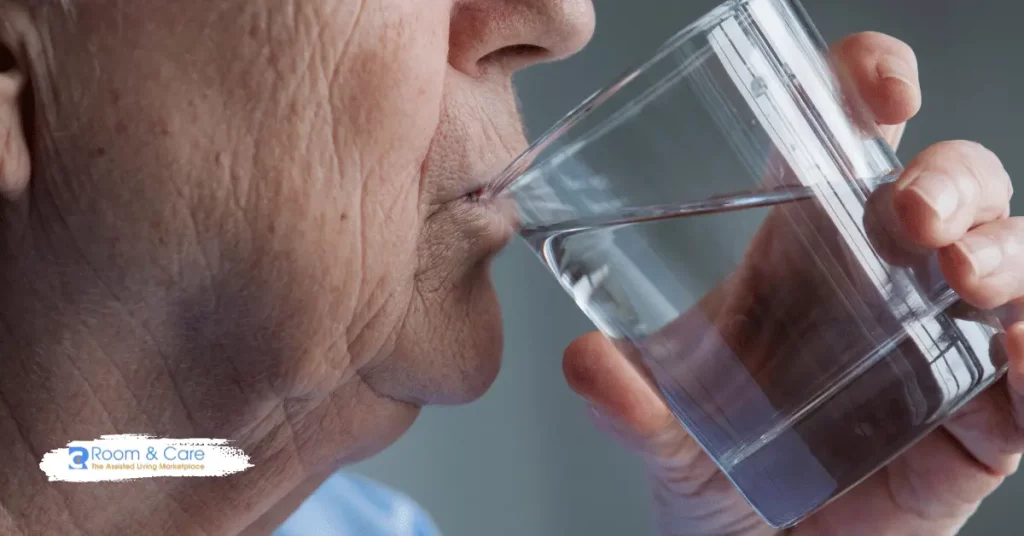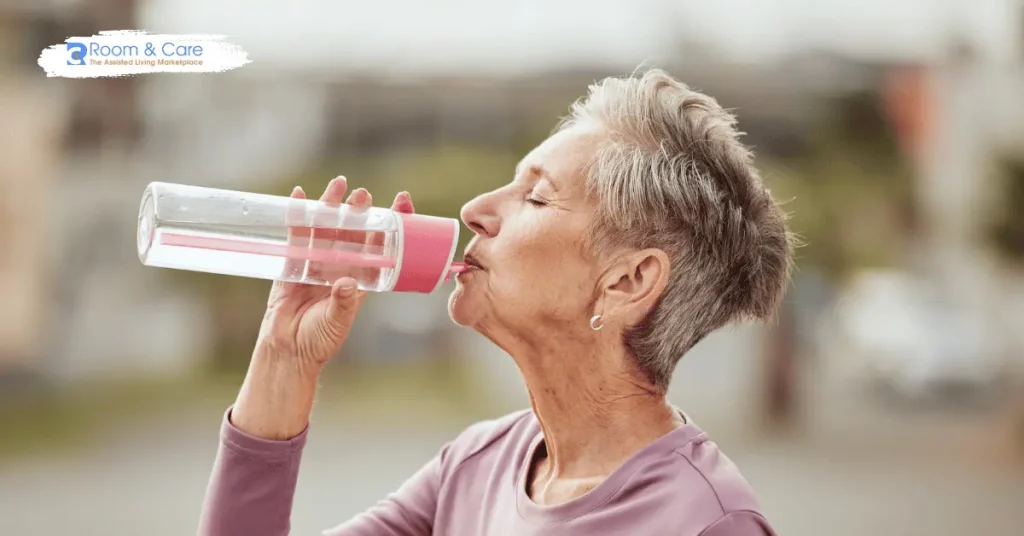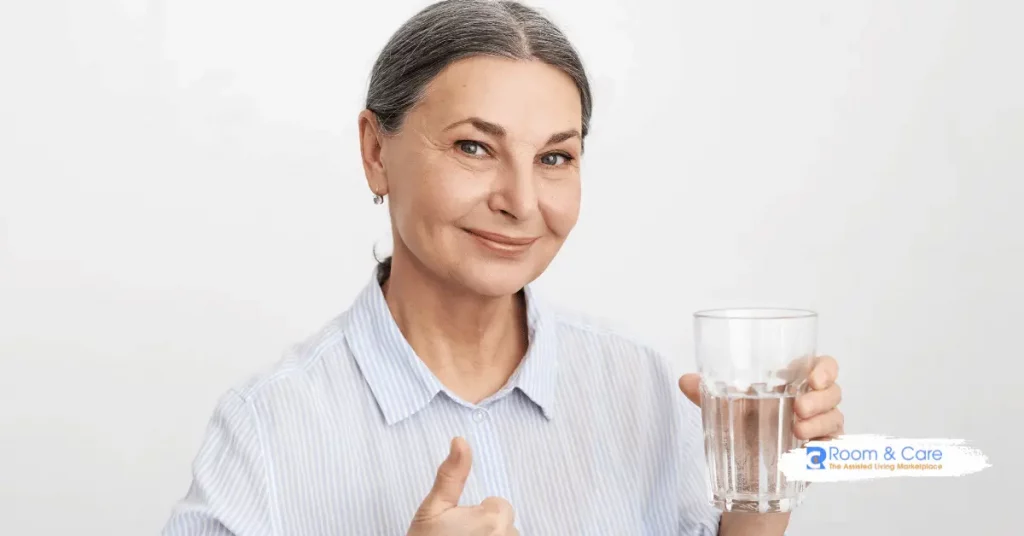

Dehydration is a common, yet often overlooked, health issue among seniors. As we age, our bodies undergo changes that make it more difficult to maintain adequate hydration, leading to potentially serious health risks. Whether your loved one resides in an independent living facility, an adult family home, or an assisted living community, understanding the dangers of dehydration in seniors is critical for ensuring their well-being.
This comprehensive guide will explore the causes of dehydration in seniors, signs and symptoms to watch for, and how to treat and prevent dehydration effectively. We will also discuss the role of senior living communities in managing dehydration and offer practical advice on hydration for caregivers, family members, and seniors themselves. By the end of this article, you’ll be well-equipped to manage and prevent dehydration in elderly loved ones, ensuring they stay healthy and hydrated.
Seniors are naturally more vulnerable to dehydration for several reasons. First and foremost, as we age, our sense of thirst diminishes, making it less likely for seniors to drink fluids regularly. By the time they feel thirsty, they may already be dehydrated. Additionally, older adults experience changes in kidney function, reducing the kidneys’ ability to conserve water, further increasing the risk of dehydration.
Other factors that contribute to dehydration in seniors include:
Understanding these risk factors is key to recognizing why dehydration is such a significant concern in senior living communities. Caregivers and family members must remain vigilant and ensure that seniors receive adequate hydration, particularly in warmer months or during illness.
Recognizing the early signs and symptoms of dehydration in adults—especially seniors—is vital for preventing more serious health complications. Unfortunately, many of the symptoms of dehydration can be mistaken for other age-related conditions, making it easy to overlook this issue. Knowing what to look for can make all the difference in ensuring timely intervention.
Caregivers in assisted living facilities, independent living communities, and adult family homes must be trained to recognize these signs early on. Prompt action can prevent mild dehydration from escalating into a more serious medical emergency.

Dehydration is more than just feeling thirsty; it can lead to significant health risks, particularly in older adults. When the body doesn’t have enough water, it cannot perform essential functions properly, leading to a range of complications. Seniors are especially vulnerable to these issues, as they often have pre-existing health conditions that dehydration can exacerbate.
Some of the most common health problems caused by dehydration include:
In senior living communities, caregivers need to be particularly vigilant about monitoring residents’ hydration levels. In independent living communities, seniors may need more guidance and reminders to stay hydrated, as they are less likely to have around-the-clock care.
Treating dehydration in elderly adults depends on the severity of the condition. While mild dehydration can often be remedied at home or in a care facility by encouraging fluid intake, severe cases may require medical intervention.
For mild dehydration, increasing fluid intake is the first line of defense. Encourage seniors to drink water or hydrating beverages like electrolyte solutions, broths, or diluted fruit juices. Caregivers in assisted living facilities and adult family homes can offer fluids frequently throughout the day and ensure that residents have easy access to water. This is particularly important for seniors with mobility issues, as they may not be able to get a drink without assistance.
Offering fluid-rich foods such as watermelon, cucumber, and oranges can also be an easy way to boost hydration, particularly for seniors who are reluctant to drink large amounts of water.
In more severe cases, dehydration may require medical treatment, including intravenous (IV) fluids to quickly restore the body’s fluid balance. Seniors with severe dehydration should be taken to the nearest healthcare facility, where doctors can monitor their recovery and treat any complications that may have arisen.
It’s essential to seek medical help immediately if a senior shows signs of severe dehydration, such as confusion, fainting, or a rapid heart rate. Left untreated, severe dehydration can lead to kidney failure, heatstroke, or even death.
The best way to combat dehydration in seniors is through prevention. These tips can help ensure they stay adequately hydrated:
By implementing these strategies, caregivers can help prevent dehydration and its related complications, allowing seniors to live healthier, more comfortable lives.
Senior living communities play a critical role in preventing and managing dehydration among their residents.
In more structured environments like assisted living and adult family homes, caregivers are often responsible for ensuring that residents receive enough fluids throughout the day. These facilities can also implement hydration programs, where staff members offer drinks at regular intervals and monitor fluid intake.
In independent living communities, seniors may need more education and encouragement to stay hydrated, as they have more autonomy and less daily supervision. Providing access to water, offering educational materials on hydration, and encouraging social activities that incorporate hydration breaks (such as group exercises or outdoor events) can help.
At Room and Care, we connect families with the best senior living communities, including independent living facilities, assisted living facilities, memory care centers, and adult family homes. Our services are designed to make finding care options easy, and we do this with no referral fees or middlemen, allowing families to access the care they need directly and affordably.
Whether you are a family member caring for a loved one or a professional caregiver in an adult family home, here are some practical tips to encourage proper hydration:

Seniors should aim for at least 6-8 glasses of water per day, but individual needs may vary depending on factors like activity level, medication, and health conditions. Consult with a healthcare provider to determine the right amount for your loved one.
Yes, dehydration can lead to cognitive impairment, including confusion and delirium. If a senior is displaying these symptoms, it’s important to assess their hydration levels and seek medical advice if needed.
The best way to treat mild dehydration is by increasing fluid intake. Water, electrolyte drinks, and broth are good options. Offering fluid-rich foods can also help seniors rehydrate.
Dehydration is a serious health concern for seniors, but with the right knowledge and proactive care, it can be prevented. By staying vigilant for the signs and symptoms of dehydration, offering hydration support, and creating an environment that encourages regular fluid intake, you can help your elderly loved ones stay healthy and hydrated.
At Room and Care, we understand the importance of finding the right care environment for seniors.
Remember, hydration is key to ensuring seniors lead a comfortable and healthy life. Let’s work together to make it a priority!